The Midnight Library: Choices, Regrets, and Growth
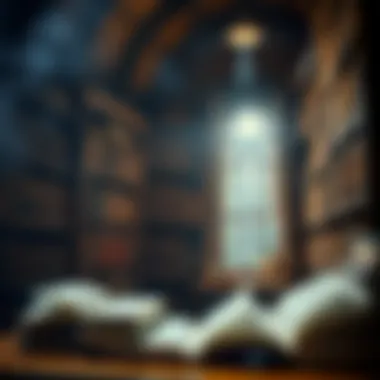
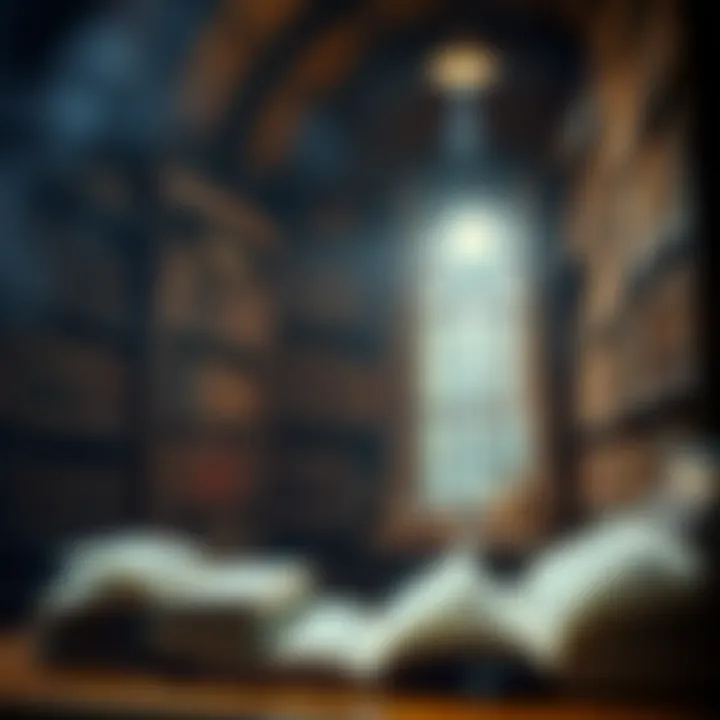
Intro
In the grand tapestry of life, choices loom large, casting shadows of regret and illuminating paths we never took. "The Midnight Library" by Matt Haig taps into this complexity, serving as a mirror reflecting our own lives back to us. Set against a backdrop of infinite possibilities, the narrative invites its readers to ponder the weight of their decisions, examining the very fabric of happiness and fulfillment. The protagonist, Nora Seed, becomes a conduit for exploring the interconnectedness of dreams and choices, leading us to a deeper understanding of ourselves and the vast potentials nestled within our lives.
In this journey through the pages of Haig’s work, we will dissect key lessons, delve into the author’s insights, and uncover the profound themes that resonate throughout the narrative. The exploration will not only illuminate Nora's tale but will also engage us in critical self-reflection about our own choices and the paths we wish we had taken. Through this comprehensive examination, readers will gain valuable insights into the essence of personal growth and the role that perspective plays in determining one's fulfillment in life.
Key Lessons from the Book
Lesson Overview
At the heart of "The Midnight Library" lies a treasure trove of lessons that transcend the narrative itself. One compelling takeaway is the self-discovery that arises from facing one’s regrets head-on. The library symbolizes the countless lives one could lead, but it’s Nora’s confrontation with her past decisions that sets the stage for meaningful transformation.
- Embrace Regret as a Teacher: Regret often brandishes a negative connotation, but within Haig's pages, it emerges as an opportunity for introspection. Each decision shapes our character and influence our future. By recognizing regret as a facet of growth, we cultivate a healthier relationship with ourselves.
- The Weight of Possibility: Nora’s journey through various lives she could have lived insists on a profound realization: every choice, no matter how small, has the power to pivot our lives in unexpected directions. This underscores just how intertwined our present is with every decision leading up to it.
- The Significance of Choice: The sheer act of choosing becomes illuminated in the narrative. Each book in the Midnight Library stands not just as a story but as testament to the importance of agency in crafting our life's narrative.
Practical Applications
Readers can glean valuable lessons from the narrative and apply them practically in their lives. Here are some practical applications derived from the book:
- Journaling for Reflection: Begin journaling your thoughts about choices made. This can help clarify your feelings surrounding those decisions, much like Nora’s exploration within the library.
- Setting Daily Intentions: Take a moment each day to set intentions based on what feels fulfilling. Like Nora, decide the course you want to steer your life towards.
- Engaging in Conversations about Choices: Surround yourself with individuals willing to discuss their choices and regrets. The exchange of experiences can illuminate paths you've yet to explore.
Author Insights
Author Background
Matt Haig has made a name for himself not only as a writer but as a keen observer of the human condition. His own battles with mental health permeate his narratives, offering authenticity and depth. This unique perspective enriches "The Midnight Library," making it resonate with a wide audience grappling with their own emotional landscapes.
Key Themes Explored
Themes in "The Midnight Library" echo loudly in the corridors of human experience.
- Regret and Acceptance: The duality of regret as both a burden and a potential source of wisdom sits at the forefront.
- The Search for Meaning: Every book Nora opens is a question—a quest for significance and fulfillment within the mundane.
- Life's Infinite Possibilities: The metaphysical structure of the library acts as a powerful allegory for life’s myriad choices and the paths less taken.
Consider delving into additional resources like Wikipedia for a broader context on this literary exploration, or join discussions on platforms like Reddit to share insights with fellow readers.
Ultimately, "The Midnight Library" opens our eyes to the reality that life’s richness often lies in the very choices that shape our existence.
Prelims to The Midnight Library
In an increasingly complex world, the notion of choice can be both empowering and paralyzing. The exploration of Matt Haig's The Midnight Library dives into this intricate landscape, examining the repercussions of our decisions and the regrets that often accompany them. This novel serves as a reflective mirror, allowing readers to consider how their own choices shape their lives. By following the protagonist, Nora Seed, through her explorations in a metaphysical library, the narrative invites us to dissect our own paths, the options we’ve taken, and those we’ve left behind.
This introduction sets the stage for a deeper understanding of the thematic richness within The Midnight Library. The layers of meaning presented encourage readers to grapple with their own experiences, prompting a dialogue about regret, fulfillment, and the search for happiness. Through Nora's journey, Haig crafts a narrative that resonates on both personal and universal levels, making this exploration not only relevant but necessary in today’s discourse on mental health and well-being.
Author Background
Matt Haig, a British author born in 1975, has made significant contributions to contemporary literature, particularly in the realms of fiction and non-fiction that focus on mental health. His personal journey through depression and anxiety provides a backdrop for much of his work. Haig’s writing often weaves in elements of philosophy, spirituality, and a bit of whimsy, all aimed at understanding the human condition. With works like Reasons to Stay Alive and The Humans, he has carved out a space in literature that speaks candidly to the struggles many face.
Haig's perspective on life adds depth to The Midnight Library. His insights into choices stem from an intimate understanding of regret's weight—an experience he has articulated through various lenses across his literary career. By marrying personal narrative with fiction, he encourages readers to engage not only with the text but also with their own lives, making decisions about which paths to take.
Plot Overview
At the heart of The Midnight Library lies a profound premise: a library filled with books that each represent a different version of life that could have been lived. Nora Seed, the protagonist, finds herself in this unique space after contemplating her own regrets and the perceived failures of her life. In this library, each book she pulls from the shelves offers a different choice—what if she had pursued a career in music? What if she had taken the chance to start a family?
As she explores these alternate lives, Nora confronts the emotional weight of her decisions. This exploration is not merely about existing in different realities; it delves into the very essence of what it means to live, to embrace imperfections, and to acknowledge that choices—even those that seem trivial—carry significant consequences. Throughout the narrative, Haig challenges readers to contemplate the beauty and messiness of life, urging a deeper understanding of happiness and fulfillment.
With its intertwining layers of magic realism and philosophical inquiry, The Midnight Library offers a rich tapestry of thoughts about life, making it essential reading for those seeking to reflect on their own choices and the roads not taken.
Themes Explored
The exploration of themes in The Midnight Library serves as a backbone to understanding the richness of the narrative. Matt Haig dives into profound territory, addressing not just individual choices but also the broader implications of these choices on one's life. Themes such as regret, the nature of decisions, and existential questions resonate deeply, indicating the significance of personal reflection and growth. In essence, these themes offer a window into the complexities of human experience, providing readers with a platform to analyze how their own choices shape their lives.
The Concept of Regret
Regret becomes a powerful motif in the narrative, encapsulating the protagonist's internal battles. Nora Seed, the main character, is emblematic of many who feel trapped by their past decisions. The midnight library symbolizes a space where Nora confronts her regrets head-on. It highlights that while regrets are often viewed negatively, they offer a unique opportunity for introspection and personal growth.
Understanding regret in this context allows readers to view it not merely as an emotional burden but as a catalyst for change. By engaging with her choices represented in the books of the library, Nora learns that each regret is intertwined with potential fulfillment. Instead of resigning to despair, she discovers paths that might lead to contentment and purpose.
"Regret is a teacher, it helps us see the paths we have not taken, lighting our way to choices ahead."
Choices and Consequences
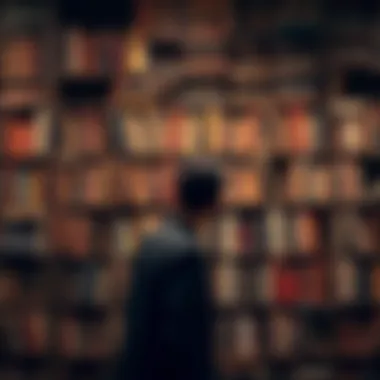

The concept of choices stands out as a central theme, tightly linked with consequences. Each decision Nora faces in the library opens a different life to explore, illuminating the intricate tapestry of possibilities life offers. The idea is that every choice carries weight; they sculpt our identities and determine our futures.
In this parallel universe of the library, Nora learns how differing choices lead to vastly different existences. She sees herself as a musician, an Olympic athlete, or a mother, yet each choice comes with its own set of constraints and ramifications. This narrative cleverly emphasizes an essential truth: that choices and their consequences are not independent of one another. Absorbing this lesson encourages readers to think critically about their own lives, promoting an understanding of the ripple effect that seemingly small decisions can have over time.
Existential Reflections
Existentialism courses through the veins of The Midnight Library, pushing readers to reflect on primal questions of existence. What does it mean to live a meaningful life? Is happiness a mere illusion, or is it attainable through conscious choices? These reflections unfold through Nora's journey, as she grapples with her purpose and the significance of her existence.
Nora's experience in the library serves as a metaphorical trip through her psyche, prompting readers to ask themselves about their own lives. The story challenges societal norms and highlights the subjective nature of happiness and fulfillment. By pushing these boundaries, Haig opens up a dialogue that abounds with philosophical depth. Life is depicted as an intricate balancing act between choices made and the existential weight of those choices. By leaning into these reflections, readers are invited to consider their own journeys, perhaps discovering new avenues to explore within their lives.
The Midnight Library as a Metaphor
In the heart of Matt Haig's The Midnight Library, lies a metaphor that spirals out, not just as a narrative device, but as a profound commentary on life itself. The titular library, a strange and ethereal space, serves as a symbolic crossroads of choices and possibilities. Here, every book represents a distinct path, an alternate life that one could have led. The library becomes a reflection on the choices we often deem insignificant at the time, yet which hold the weight of our futures. Its very existence provokes questions about fate, personal responsibility, and the nature of happiness, allowing readers to sift through their contemplations on their own lives.
A Space of Possibilities
The Midnight Library operates as an expansive realm that epitomizes the potential of infinite choices. Each shelf, lined with volumes, invites exploration. Think about it: faced with a single decision, how easy it is to overlook the myriad of outcomes that branch forth from just one choice. "What if I had taken that job?" or "What if I had stayed in that relationship?" These scenarios echo throughout the narratives of our lives. By juxtaposing Nora Seed against countless ‘what-could-have-beens’, the library challenges us to reconsider our own perspectives on opportunity and regret.
The library teaches us that, while we may feel shackled by regrets, we can also embrace those same regrets as gateways to learning and growth.
Books as Alternate Lives
Each book in the Midnight Library is not simply a story but a mirror reflecting alternate lives lived under different choices. For instance, a book representing Nora’s life as an Olympic swimmer diverges drastically from her reality as a failed musician. This concept is rich with implications. Each title embodies a lifetime, replete with its own joys and sorrows, triumphs and failures. The metaphor here expands into the idea that life is seldom a straight line; it is webbed with intricate pathways, often twisting and turning unpredictably. This notion is not just relevant in the narrative; it resonates with real human experiences. The books symbolize the diverse journeys that shape our identities, illuminating how our past vines weave informatively and intricately into who we become.
Navigating Through Lives
Having access to the library gives Nora not only glimpses but a chance to dive into these alternate existences, allowing her to literally navigate through lives she might have lived. Each decision she confronts reveals a tapestry of emotions, which serve as both reflection and revelation. The act of ‘navigating’ through these lives becomes significant—how we maneuver through choices often informs our personal growth. Each life presents lessons that can be painful yet enlightening, compelling Nora (and readers) to confront the consequences of their actions or inactions.
As Nora explores different versions of herself, she begins to understand that the concept of regret shouldn’t be seen merely as a weight to carry but as an integral part of being human. The journey through these varied lives underscores the delicate balance between choice and consequence, and it serves as a poignant reminder that each decision, no matter how seemingly insignificant, shapes our paths into the people we ultimately become.
Character Analysis
In literature, characters often serve as conduits for exploring the intricate themes woven into the narrative. In The Midnight Library, two significant aspects emerge through its character analysis: the protagonist, Nora Seed, and the supporting characters who surround her. Each character brings a facet of understanding that deepens the exploration of choices, regrets, and the paths that one could traverse. Through this lens, readers not only encounter the essence of the story but also reflect on their own lives.
Protagonist: Nora Seed
Nora Seed stands as the linchpin of this tale, personifying the struggles and triumphs of choice. At her core, she embodies the idea of regret—straddling the divide between potentials and realities. Throughout her journey in the library, she confronts her past, revealing a complex interplay of decisions that shape her present self.
Her character provides the reader with a mirror to their own experiences. Nora is relatable yet intricate; her flaws illustrate the human condition. For example, the various lives she explores each reflect a trait or an aspiration she may feel she has failed to realize. This depth compels the audience to ponder: what would they have done differently in her shoes?
Nora's story arc—her evolution from despair to acceptance—teaches us about the multifaceted nature of happiness. Each alternate life she encounters is not merely a fantasy; it's a poignant reminder that fulfillment is often crafted from the very imperfections we seek to escape.
Supporting Characters
While Nora's character is the focal point, the supporting characters enrich her journey, each serving a unique function that adds depth to the narrative. These relationships highlight different aspects of Nora's choices and the way they echo throughout her life.
Nora's Family
Nora's family plays a pivotal role in shaping her narrative landscape. Her parents and brother represent the weight of familial expectations and personal disappointments. They anchor her emotional ties to her past and symbolize the unsaid burdens many carry. The interactions between Nora and her family often unveil the rough patches in her psyche, graced by both love and misunderstanding.
One unique feature of her family's dynamics is their reflective nature, illustrating how different family members approach the concept of success. Nora feels she has underperformed in their eyes, which leads to her desire to escape into the realm of alternate lives. This familial backdrop compounds her feelings of regret, making it a significant aspect of the overall analysis.
Despite their imperfections, there is an undeniable benefit to their presence in the story: they push Nora toward introspection, urging her to confront her choices instead of merely avoiding them. This journey through familial relationships becomes a crucial element in her eventual path toward acceptance.
Mr. Penumbra
Mr. Penumbra, the enigmatic figure within the library, introduces a touch of whimsy alongside wisdom. He symbolizes guidance and the keeper of knowledge. More importantly, he serves as a bridge between the reality of Nora's struggles and the larger existential questions posed throughout the narrative.
His key characteristic is curiosity—an almost childlike urge to explore unknown worlds. This curiosity plays a formative role in Nora's experience, motivating her to question her choices rather than wallow in them. Mr. Penumbra is beneficial not just for his insights but for presenting an alternative perspective on the concept of seeking fulfillment.
The unique feature of Mr. Penumbra's day job as a bookseller intertwines with the larger theme of the library; he embodies the notion that stories shape lives. His character challenges the traditional boundaries of fate, presenting the reader with the idea that choices have the power to evolve through knowledge and understanding.
The Librarian
The Librarian, another vital figure, represents authority and wisdom in this metaphysical space. Unlike the other characters, however, she embodies the impartial observer, providing Nora with choices without bias. Her presence is critical in navigating the library’s myriad paths. Without her guidance, Nora's journey could become overwhelmed by chaos.
The Librarian's catalytic role emphasizes that choices, while personal, are sometimes best approached with an external viewpoint. The advantage here is clear: she encourages Nora to explore paths she may not have considered otherwise—thus pushing her deeper into self-discovery. Her character aids in emphasizing the importance of seeking out wisdom when making pivotal life decisions.
Philosophical Underpinnings
In Matt Haig's 'The Midnight Library', philosophical underpinnings play a crucial role in shaping the narrative and enhancing the reader's understanding of life's complexities. The concepts explored in this novel are not mere accessories to the plot; they provide a framework for contemplating deeply held beliefs about choice, existence, and happiness. Each philosophical layer adds richness to the story, compelling us to ask fundamental questions about our own lives and the paths we choose.
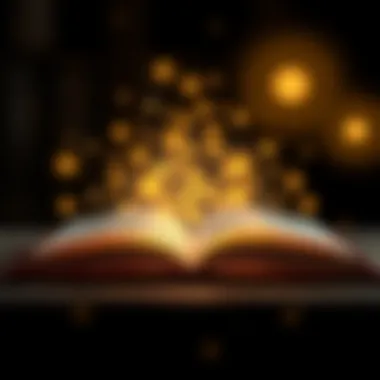
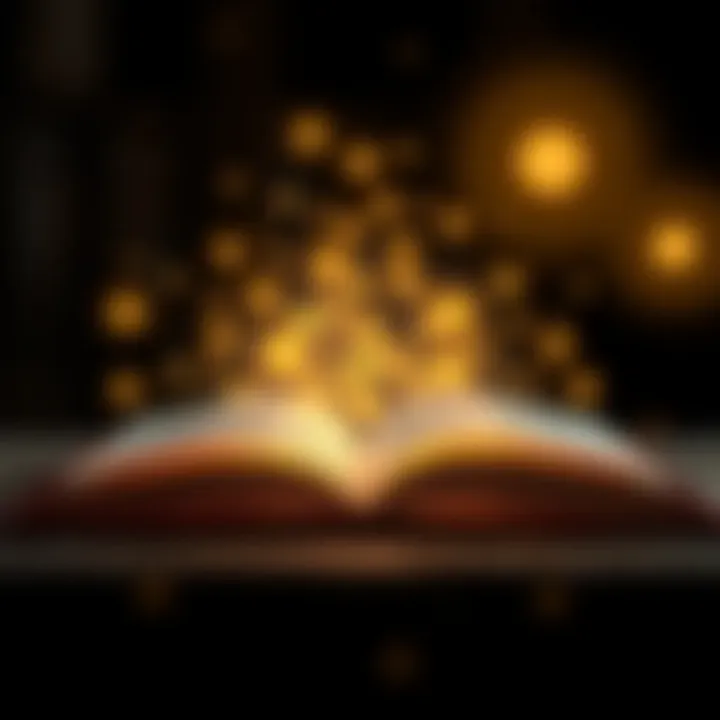
What makes these philosophical elements so important in the narrative is that they resonate with universal themes. Readers, whether they are students, educators, or entrepreneurs, can find themselves in Nora's predicament — facing regrets about choices made or not made. The library itself serves as a metaphorical space, not only for exploring different lives but also for reflecting on the nature of existence and individual choice. This approach encourages readers to delve into their own narratives and confront their fears, aspirations, and regrets.
Influence of Existentialism
The existential themes woven throughout 'The Midnight Library' offer a rich backdrop against which Nora's journey unfolds. Existentialism is centered on the idea that individuals are responsible for imparting meaning to their own lives despite often confronting absurdity and despair. Haig's exploration of these ideas encourages readers to embrace the uncertainty that surrounds our existence.
Nora, as she navigates the various lives available in the library, embodies the essence of existential choice. She learns that each choice leads to a new set of possibilities and consequences. The concept that life might sometimes be a game of chance comes to the forefront here, compelling readers to ponder their own choices.
Through Nora's experiences, Haig illustrates that while we might not control everything in our lives, we still hold the reins to our decisions. This realization can be both liberating and daunting, prompting introspection about our values and paths.
"The only way to effectively navigate through life’s choices is to acknowledge the unpredictability that accompanies existence."
The Nature of Happiness
Haig also invites readers to reflect on what happiness means through Nora's exploration of alternate realities. Each life that Nora considers is marked by varying degrees of happiness, serving as a reminder that fulfillment is often not a straightforward path. This complex portrayal of happiness refrains from presenting it as an attainable goal; rather, it’s shown as something that can be fleeting and often tied up with factors like relationships, career choices, and the impact of regrets.
As Nora dives deeper into her chosen lives, she begins to understand a fundamental truth: happiness is not simply about choosing the path that seems most appealing. It involves accepting the imperfections in every life choice and realizing that fulfillment can arise from day-to-day experiences.
This nuanced view of happiness challenges the notion of an idyllic life, suggesting instead that a meaningful existence encompasses highs and lows. Haig highlights the importance of perspective, indicating that how we perceive our experiences significantly colors our understanding of happiness. Instead of placing all focus on outcomes, the author encourages readers to find joy in the journey itself, urging us to find meaning even in mundane moments.
Life Lessons from The Midnight Library
In Matt Haig's fascinating novel, readers are invited to explore not just the narrative, but the lessons entwined within its pages. The Midnight Library takes us on a journey through choices and regrets, but it also serves as a vessel for profound life lessons. Each lesson resonates with the complexities of human experience, offering valuable insights relevant to students, educators, and entrepreneurs alike. The emphasis should be on how personal growth stems from choices made, and the power of perspective in navigating life's challenges. More than simply a story, this library is a metaphorical trove of wisdom that allows us to reflect on the significance of our daily lives.
Accepting Imperfection
A significant lesson from The Midnight Library is the importance of accepting imperfection. The protagonist, Nora Seed, grapples with her perceived failures, delving into the endless possibilities of what could have been. Yet, as she journeys through various lives, it becomes clear that perfection is a myth. Each alternate life presents its own set of challenges, making it evident that every person has their unique hang-ups and troubles.
- Embracing flaws: Nora discovers that flaws are intrinsic to being human. Instead of dwelling on what she lacks, she learns to appreciate her experiences, both good and bad.
- Redefining expectations: The idea that one must achieve perfection in every aspect often leads to disappointment. Accepting that mistakes are part of the learning process can lighten the emotional load many carry.
- Growth through acceptance: Recognizing imperfection isn't about lowering standards but about understanding that growth comes from navigating life's bumps and barriers.
“When you stop striving for perfection, you can begin to enjoy your journey.”
This mindset encourages a healthier approach to both personal and professional endeavors.
The Power of Perspective
Another life lesson that echoes throughout Haig’s narrative is the power of perspective. Nora’s explorations shed light on how her view of the world greatly shapes her experiences and choices. A limited perspective can lead to feelings of despair, while a broader viewpoint offers new possibilities and hope.
- Transforming views: Through variations of her life, Nora learns to see her potential and worth differently. Each life provides her with insights and teaches her that shifting perspective can vastley impact happiness.
- Seeking new angles: Whether in educational pursuits or entrepreneurship, looking at problems from various angles can lead to innovative solutions. It’s essential to remain adaptable and open-minded, cards close to the chest while remaining ready to pivot.
- Understanding others: Cultivating empathy forms part of this lesson as well. Understanding the experiences of others enriches our own perspectives and may transform how we react to challenges.
Finding Meaning in the Everyday
Lastly, The Midnight Library poignantly illustrates the importance of finding meaning in the everyday moments of life. Nora’s quest for fulfillment starts as a search for grand achievements, but it soon becomes clear that real value lies in the subtle, simple aspects of life.
- Appreciating small things: Whether it’s a shared laugh with a friend or a quiet morning coffee, finding joy in minor occurrences can create a profound shift in perspective.
- Creating meaning: Meaning is not always inherent; often, it’s constructed through our relationships and daily activities. Engaging fully in the present allows one to derive satisfaction and purpose, instead of waiting for dramatic changes.
- Impact on mental health: Recognizing and celebrating small victories can foster resilience, particularly in education and business, where setbacks are common.
Narrative Structure and Style
In discussing the narrative elements of 'The Midnight Library', it’s crucial to underscore the manner in which Matt Haig weaves the storyline, presenting choices and consequences in a compelling format. The distinctive structure of the novel operates on two platforms simultaneously—one being the tangible realm in which the protagonist, Nora Seed, exists, and the other, the ethereal space of the Midnight Library. This duality enables readers to grasp the emotional weight of Nora's decisions while exploring alternate realities.
The choices that Nora faces are not merely a backdrop; they serve a deeper purpose in conveying the existential quandaries of life. Haig uses a non-linear approach, which effectively mirrors the concept of choices leading to diverging life paths. Each segment unfolds like a choose-your-own-adventure novel, but with a poignant twist—each choice comes with its fair share of regrets or what-ifs that add layers of complexity to the narrative.
Through this engaging structure, readers are allowed to walk in Nora’s shoes, experiencing first-hand the emotional repercussions of her decisions. This format creates a sense of immediacy, pulling readers deeper into the story.
Benefits of Haig’s Technique
- Enhanced Empathy: The alternating realities compel readers to empathize deeply with Nora’s struggles, tapping into universal themes such as regret and longing.
- Reflection on Choices: Readers aren’t just passive observers; they are drawn into a contemplation of their own decisions, reflected through Nora’s various lives.
- Dynamic Pace: The urgency of exploring life's choices keeps the narrative dynamic, allowing for varied pacing that can transition from calm reflection to sudden realization:
"We are all just choices waiting to be made, and the Midnight Library is the mirror that reflects our possibilities back at us."
Considerations for Engagement
It's worth noting that the significance of the library metaphor also resonates throughout the narrative, offering a space where every life choice can be examined. The branches of different possibilities encourage critical engagement from readers, stimulating them to reconsider their own choices and the myriad outcomes. The narrative not only entertains but also serves as a philosophical pondering ground.
In terms of style, Haig’s language remains accessible yet thought-provoking, balancing simplicity with substance. His use of imagery when describing the library fosters a vivid understanding of how choices shape identity.
利用简单的词汇和清晰的句子使读者们保持参与感,且不容易分心。虽然故事情节步伐灵活,但积极引导的文风保持了作品的韵律感,确保读者始终感知到故事的核心主题。
This balance between a flowing narrative and the profound implications embedded within the text sets 'The Midnight Library' apart as a rich literary experience, reinforcing the idea that every choice carries weight and meaning.
Comparative Literature


Exploring the depths of literature can often yield unfathomable insights, particularly through a comparative lens. In the context of The Midnight Library, comparative literature serves as a powerful tool to scrutinize similar themes in different works, thus enriching our understanding of the narrative's core concepts: choices and regrets. By bridging connections with other texts, we can appreciate the universal nature of these human experiences and learn how they manifest across various narratives.
This approach invites readers to reflect on how themes of regret and life choices resonate beyond the confines of Matt Haig's novel. Detailed comparisons allow for a broader understanding of existential ideas and emotional landscapes that characterize contemporary literature, showcasing how diverse authors tackle similar philosophical questions, pushing the boundaries of narrative expression and provoking deeper thought.
Similar Themes in Contemporary Literature
The Midnight Library vs. Life After Life
In examining the parallels between The Midnight Library and Life After Life by Kate Atkinson, one potent aspect is the exploration of multiple lives and the choices that shape them. Both novels articulate the notion that our previous decisions pave the way for an array of potential realities. This duality invites readers to contemplate their own lives and the paths not taken. The reflective nature of The Midnight Library provides a clear illustration of how one regret can lead to countless what-ifs, ultimately inviting a deeper discussion about fate and free will.
A distinguishing characteristic of Life After Life is its cyclical narrative structure, where the protagonist, Ursula Todd, experiences her life multiple times, recalibrating based on calculated choices. This unique feature propels discussions around agency and the consequences of decisions. It complements the revelatory experience found within The Midnight Library, as both texts highlight the intricate dance between choice and consequence, making them beneficial to readers seeking to understand the complexities of their own lives.
The advantages of engaging with these two texts lie in their ability to provoke thought and facilitate a dialogue on regrets and possibilities, though the potential disadvantage of Life After Life may emerge in its nonlinear narrative, which can lead some readers to feel lost, unlike the more straightforward exploration present in The Midnight Library.
The Midnight Library vs. The Alchemist
Conversely, when we turn our gaze toward The Alchemist by Paulo Coelho, we observe another rich comparison grounded in the quest for meaning and self-discovery. Both narratives emphasize personal legends and the journeys undertaken to fulfill them, resonating with the title's inherent advocacy for embracing one's own path. In The Midnight Library, Nora's exploration of her alternate lives echoes Santiago's adventures as he seeks treasure, unveiling both stories' core belief that the journey itself—marked by choices—is as valuable as the destination.
The key characteristic that sets The Alchemist apart is its allegorical style, which enhances the mystical elements woven throughout the protagonist's quest. This element of magic realism offers a contrasting narrative approach to Haig’s more accessible exploration of choices. While Coelho’s work unravels philosophical insights through metaphor, The Midnight Library presents a tangible, relatable framework for understanding regrets that its readers can grasp more easily.
Concerning the implications for this article, these unique features foster a wider appreciation of human experience, emphasizing that both texts approach the idea of choice from different angles. They illuminate the necessity of pursuing one's legend while also acknowledging the weight of decisions not made. However, readers might find themselves more connected to one style over the other, depending on their personal preferences for storytelling.
Much like a tapestry woven with threads of different colors, comparative literature enriches our understanding of thematic elements across various works. By examining how choices and regrets unfold in both The Midnight Library and other influential texts, we find a collective reflection that can guide our own lives.
Critical Reception
The critical reception of The Midnight Library is pivotal to understanding its impact on readers and its standing in contemporary literature. It's not just about the critiques from established outlets; it's about how those reviews shape the conversation around the book's themes, messages, and philosophical inquiry. This feedback loop informs how potential new readers perceive the story and can either spark curiosity or raise caution.
While reviews can offer varied perspectives, they often converge on the emotional resonance and thought-provoking nature of the narrative. Critics highlight the book's unique narrative structure, which invites readers to ponder deeply about their choices and the varied outcomes of lives they could have lived. The importance of this topic cannot be overstated as it reveals how a well-crafted story can open up dialogues about broader life themes, such as regret, fulfillment, and the significance of personal decision-making.
Thinking of how The Midnight Library has been received, we observe the balance between lauding its literary style and questioning its narrative premises. This nuanced discussion helps illuminate the complexities of both reader expectation and authorial intent, shedding light on why the book has struck a chord with many.
Reviews and Feedback
Reviews of The Midnight Library range from glowing endorsements to balanced critiques, offering a spectrum of insights. For instance, prominent literary platforms have underscored Matt Haig's engaging prose and ability to translate dense philosophical musings into relatable storytelling. One reviewer on GoodReads described the book as "a wonderful exploration of life's infinite paths, wrapped in a compelling narrative." This encapsulates the essence of many reviews that commend Haig's ability to weave complex ideas into accessible language.
Feedback from readers echoes many of these sentiments, emphasizing the emotional journeys experienced through Nora Seed’s exploration of alternate lives. However, some critiques point out the simplicity of the resolution, suggesting it might not meet the expectations set by the more profound themes discussed throughout the book. This juxtaposition of reader reactions underscores the subjective nature of literary criticism, revealing how personal interpretations of a text can vary widely.
- Positive highlights from reviews include:
- Criticisms often include:
- Engaging narrative that tackles profound themes.
- Relatable and empathetic portrayals of characters.
- Thought-provoking reflections on regret and choice.
- Perceived oversimplification of complex themes in the conclusion.
- Some readers finding the premise somewhat implausible.
Impact on Readers
The impact of The Midnight Library on readers is profound and multi-faceted. Many have taken to social platforms like Reddit and literary forums to express how the book has catalyzed introspection about their own lives. Readers articulate feelings of being seen, as Nora's struggles reflect universal experiences of doubt and longing.
"Reading this book made me think about the roads I didn’t take and the lives I could’ve lived. It’s a mirror of reality but sprinkled with hope that we can change our narratives."
— A reflective reader on Reddit.
This sentiment resonates strongly, providing insight into how literature can serve not only as entertainment but also as a vehicle for self-exploration and personal growth. Additionally, educators are increasingly integrating the book into discussion curricula, addressing its themes of regret and choices as they relate to adolescent development, aiding in the emotional maturity of students.
Moreover, the narrative’s reach extends beyond mere enjoyment, affecting how many approach their daily choices and the infinite potential that each person carries within their own lives. Through poignant storytelling, The Midnight Library inspires its readers to engage more thoughtfully with their own decision-making processes.
Understanding the critical reception of The Midnight Library enriches our comprehension of the book’s cultural significance, emphasizing how narratives about choice and regret continue to resonate across different readerships, making it a staple in contemporary literary discourse.
Closure
The concluding remarks of this exploration into The Midnight Library wrap up the profound lessons imbued within Haig's narrative. This section zeroes in on the intricacies of choice and regret, emphasizing how these themes resonate with the depths of human experience. It stands to reason that understanding the interplay between our decisions and their aftermath serves not just as a cursory reflection but as a vital component in shaping our very essence.
Reflections on Choice and Regret
In the labyrinth of life, choices are like the winding paths of a cobbled street. Each decision made gives rise to a new possibility while leaving behind the potential of what could have been. Just as Nora Seed grapples with her own regrets throughout The Midnight Library, it invites us to ponder the weight of our own choices. Regret isn't just a nagging feeling; it’s a complex layer of our being, informing our future actions.
Every book in the Midnight Library symbolizes a life that might have been—a haunting reminder that paths untaken can linger in our minds. As readers, we learn that it's natural to reflect on the roads not traveled, yet we must engage with these contemplations thoughtfully. By reflecting on our past decisions, we gain clearer perspectives, making way for personal growth. This process of introspection not only aids in coming to terms with the past but enables us to carve a future aligned with our authentic selves.
Final Thoughts on the Narrative Journey
The narrative journey in The Midnight Library is more than just a story about choices; it serves as a pivotal mirror where we may glimpse our own existence. It delves into the heart of what it means to lead a fulfilling life while acknowledging the inevitable nature of regret. Nora's experience in the library invites readers to consider their own connections to happiness and what might be lost in pursuit of perfection.
Haig's eloquent storytelling carries a timeless message: the importance of living deliberately in the present. As the pages turn, we recognize that fulfillment is often found in the shades of ordinary life, where every joy carries a hint of sorrow, and every regret offers a lesson. In summation, this narrative journey not only asks us to reconsider our regrets but more crucially, prompts us to embrace the imperfect path of being human.
"Regret is a teacher of wisdom—an essential companion to the choices we make."
By reflecting on Nora's journey, we craft our own understanding of the delicate balance between choice and regret, a dance that underlines the essence of existence.
Through this exploration, we discern that the journey through life is uniquely ours to navigate, shaped by our decisions, and steeped in the learning that follows.



